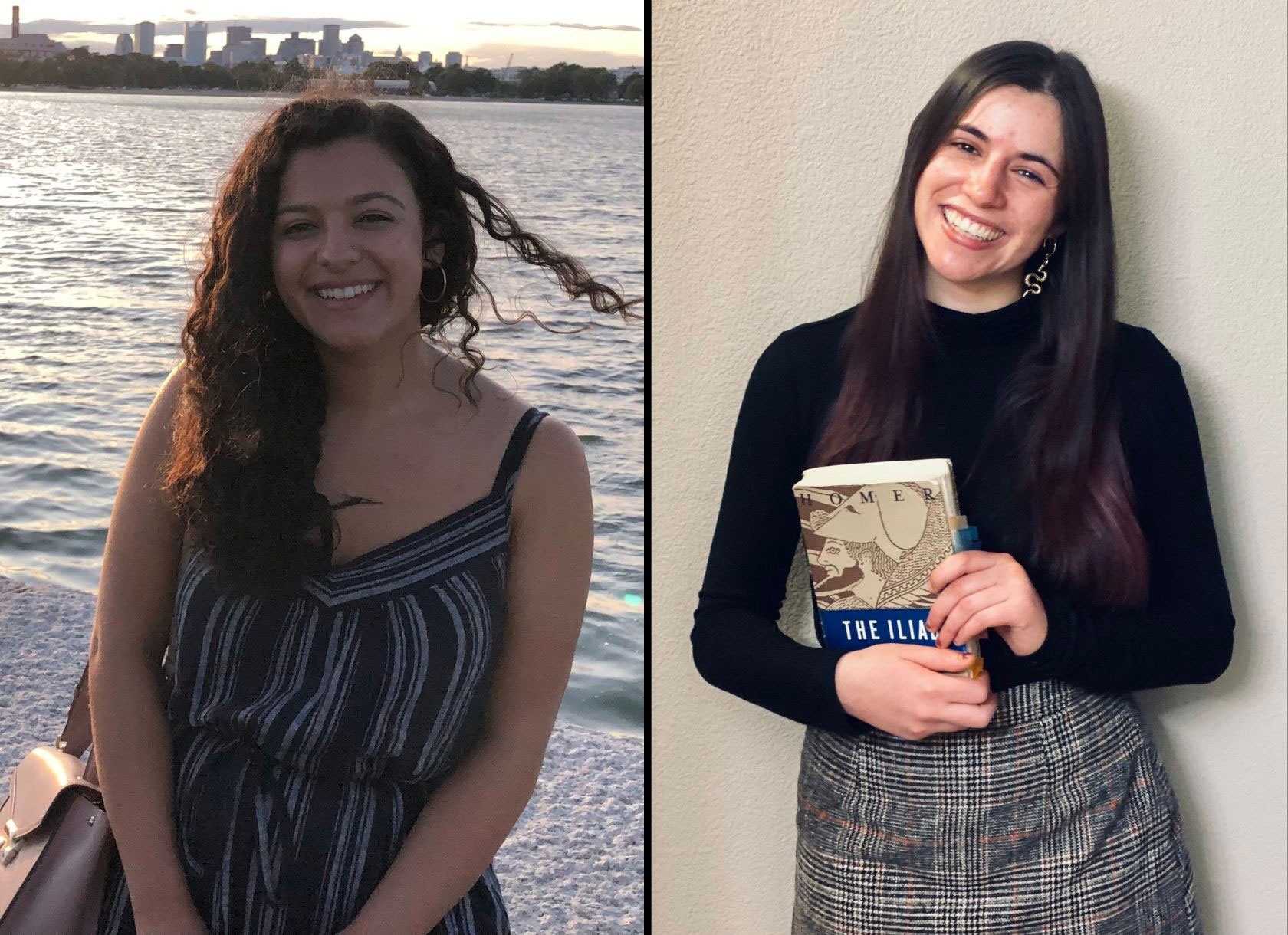
Heroes, monsters, and goddesses are the order of the day for seniors Ruby Laufer ’21 and Alyssa Rowshan ’21. For these two majors in ancient studies/classics and late antique-medieval studies, classical literature is more than a trove for understanding the cultures of antiquity or an escapist pleasure—though it’s that, too—it is a guidebook for gaining deeper insight into humanity.
Laufer, who was awarded the Robert B. Palmer Classics Award in 2020 and is minoring in biology, recalls that she has loved ancient Greece for as long as she can remember. “Studying classical literature brings to light the complexity of human nature,” she says. “Through reading and engaging with classical literature, we can ask ourselves questions about human experience and emotion. How do we doom ourselves through our own subconscious patterns? What does it mean to have honor? Do the systems of values that we build our lives around ultimately let us down? Can we ever forget the crimes of our past? Can people change?”
For Rowshan, who was awarded the 2020 Sybil Smith Memorial Latin Prize, the study of classic literature and languages is all that and more. “I originally started taking Latin in my first year of high school, and I’ve been hooked ever since,” she recalls. “Reading Latin is a lot like putting a puzzle together . . . almost like a math equation. Once I start translating a text, though, I can get really creative with my choices.” She adds that the critical habits of mind she has formed as a classics major have fortified her with the skills to deeply engage with texts and form arguments: “I mean, if you can learn how to critique Plato or Aristotle, then speaking up in other situations isn’t quite as daunting,” she says.
Both seniors also share a fascination with the woman characters in the classical oeuvre, finding in their stories veritable argosies for critical interpretation—and personal inspiration. Laufer’s senior thesis project was born out of her own desire to find female warriors in Greek literature.
“I loved the warriors of the Iliad, but I couldn’t relate to them as role models—the question of whether one should consider Odysseus and Achilles role models I will leave aside—because they were all male. So, my thesis aimed to find an answer to my fundamental question, where are the badass women warriors of Ancient Greek literature?” she explains. Rowshan also appreciates women’s legacies within the field of classical studies at the critical level, but also as a source of pure aesthetic enjoyment. “I love reading the poems of Sulpicia, who is one of the only female Roman poets whose work has survived. I also love Catullus 45 because it is such a sweet love poem, and it includes one of my favorite lines, mutuis animis amant amantur, which means ‘with shared spirits, they love and are loved,’” she says. “My final favorite would be Book 4 of the Aeneid because it can be read as quite subversive, and the treatment of Dido always sparks interesting classroom discussions.”
Rowshan, who was a member of the Middle Eastern Student Association and the 5C roller derby team while at Scripps, is planning for a career in political data analysis. For her, the wisdom of the classics provides a moral framework that she can take with her into that arena. “I have been studying Latin for eight years, and my favorite quote is leges sine moribus vanae, ‘laws without morals are empty.’”
Laufer, who is also the captain of the Claremont Equestrian team and a Laspa Center for Leadership grant awardee for her work in an emergency veterinary clinic, is planning a gap year following Commencement before attending veterinary school in the fall of 2022. As to how she reconciles her plans for a science-based career with her love of classical texts, she offers that “science also explains the world. But without humanities, there is no understanding of emotion, and emotion is ultimately what rules us. I study classics because when civilizations fall, these stories live on.”

